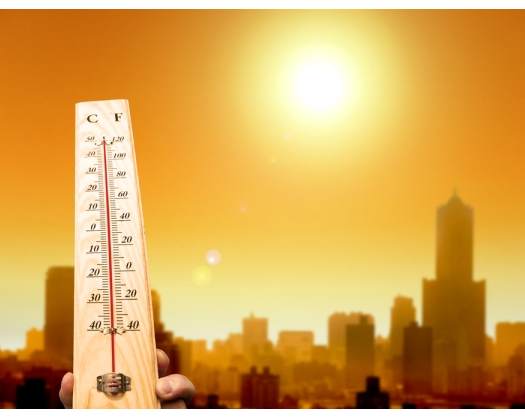With temperatures soaring above 45 degrees Celsius, it is crucial for individuals on the move to prioritize their safety by following summer precautions.
Staying hydrated is of utmost importance, and one should ensure to drink ample amounts of water. It is equally essential to maintain a healthy lifestyle by avoiding dehydrating beverages such as alcohol, coffee, tea, and caffeinated soft drinks, as they can have adverse effects, especially during the scorching summer months.
Dr. Mohammed al Rahbi, the Head of Emergency Medicine at Al Nahda Hospital, emphasizes the prevalence of dehydration and fatigue during summer. He highlights the significance of taking necessary precautions to prevent sunstroke and succumbing to heat waves. Failing to do so can jeopardize one's well-being amidst the extreme temperatures.
Dr. al Rahbi further advises individuals working outdoors to prioritize their well-being as summer approaches and the days become longer. The hazards of working under the sun during hot weather are considerable, and it is crucial to take proper care of oneself in such conditions.
Dr. Al Rahbi emphasizes the importance of outdoor workers and blue collar workers taking adequate breaks in the shade during peak hours and limiting their work to the cooler parts of the day. Maintaining proper hydration is also crucial, according to Dr. Al Rahbi.
Mini Padikkal, a Clinical Dietician at NMC, suggests that wearing caps can shield individuals from direct sunlight on the face, while using sunscreen and staying hydrated can help protect their skin. She also mentions that summer can be a challenging time that tests one's endurance.
Staying hydrated by drinking plenty of water, wearing loose and light-colored clothing, and avoiding dark colors that absorb heat are essential during the summer, as advised by Mini.
Health issues during the summer can range from heat stress to heat stroke, exhaustion, cramps, or rashes. Doctors warn that heat can lead to an increased risk of injuries for workers, causing symptoms like sweaty palms, fogged-up safety glasses, and dizziness.
Dr. Viresh Chopra from Oman Dental College highlights the risks of heat stress for workers exposed to extreme temperatures or working in hot environments. Occupational illnesses and injuries can result from prolonged exposure to extreme heat, according to Dr. Chopra.
Furthermore, it is recommended by medical professionals to promptly seek medical attention at a hospital if symptoms such as body aches, dizziness, fatigue, chills, fever, diarrhea, and vomiting occur. Timely intervention can effectively prevent excessive loss of water and electrolytes from the body, expediting the recovery process.
VEHICLE CARE
During the summer months, vehicles are under increased stress due to rising temperatures. Incidents of vehicles catching fire have become more common, emphasizing the need for precaution to protect oneself and others.
Drivers facing extreme heat should regularly inspect their battery, tires, and cooling systems. It is also recommended to turn off the engine while refueling at petrol stations and to never leave a child unattended in a hot car.
Various factors such as fuel leakage, gas leakage, unauthorized modifications, removed electrical fuses, overheating bulbs, and even vehicles left parked in parking lots can lead to fires.
The Royal Oman Police (ROP) advises avoiding flammable elements and taking precautions against fire hazards. During the summer, it is wise to start the engine, ventilate the car, turn on the AC, and ensure that the vehicle's air conditioning system and tires are in optimal condition.
Tips for vehicle care:
- Schedule regular maintenance appointments.
- Remember to clean both the exterior and engine compartment of your vehicle.
- Regularly inspect gas lines for leaks.
- Always use original or manufacturer-approved parts.
- Drive safely and practice defensive driving to prevent collisions that could result in fires.













